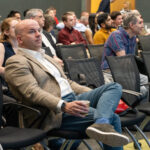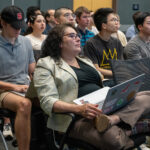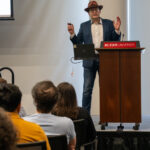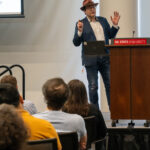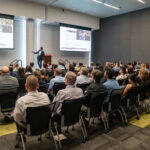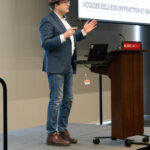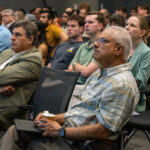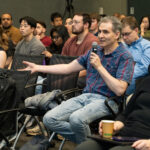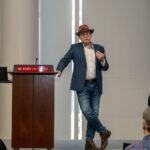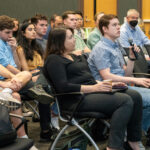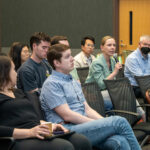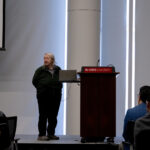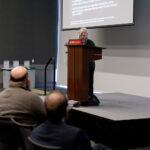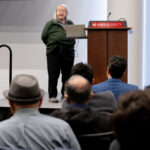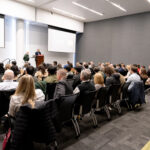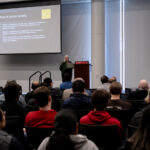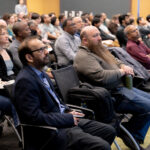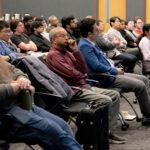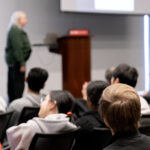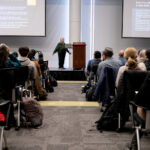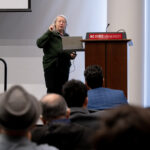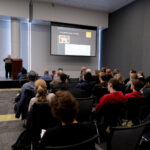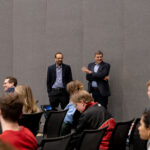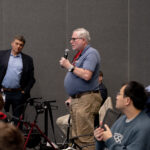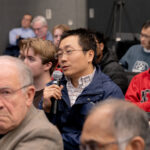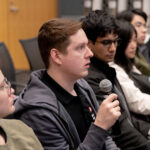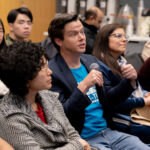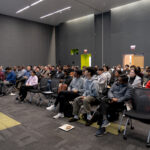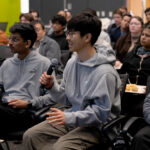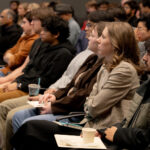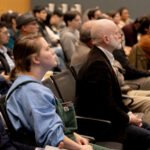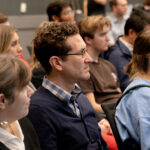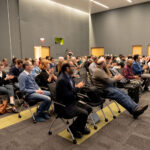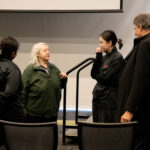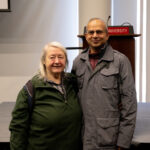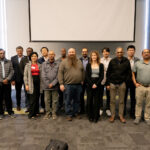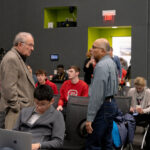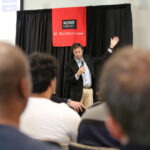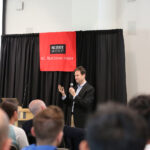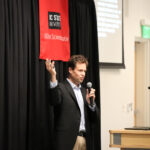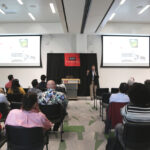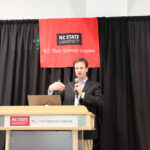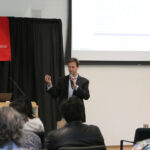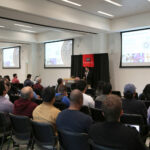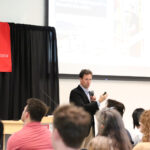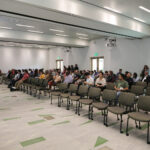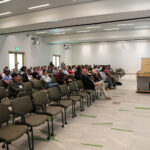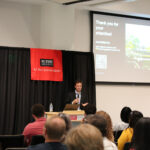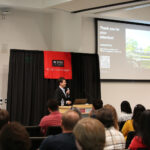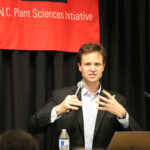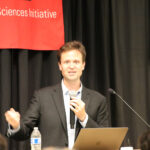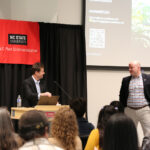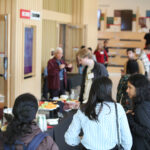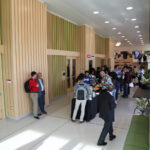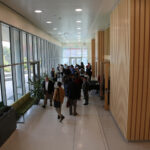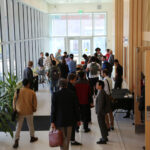Dean’s Distinguished Seminar Series
Past Events
Applied AI Futures Seminar | April 21, 2025
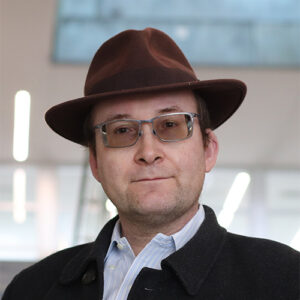
Sergei Kalinin
Weston Fulton Chair Professor, University of Tennessee, Knoxville (UTK); Chief Scientist for Artificial Intelligence and Machine Learning for Physical Sciences, Pacific Northwest National Laboratory (PNNL)
Dr. Kalinin’s Bio
Sergei Kalinin is the Weston Fulton Chair Professor at the University of Tennessee, Knoxville (UTK) and has a joint appointment with the Pacific Northwest National Laboratory as the chief scientist for artificial intelligence and machine learning for physical sciences. In 2022-23, he was a principal scientist at Amazon Special Projects (Moonshot Factory). Before then, he spent 20 years at Oak Ridge National Laboratory (ORNL) where he was corporate fellow and group leader at the Center for Nanophase Materials Sciences. Kalinin received his M.S. degree from Moscow State University in 1998 and Ph.D. from the University of Pennsylvania (with Dawn Bonnell) in 2002.
His research focuses on the applications of machine learning and artificial intelligence methods in materials synthesis, discovery and optimization and in automated experiment and autonomous imaging and characterization workflows in scanning transmission electron microscopy and scanning probes for applications including physics discovery, atomic fabrication, as well as mesoscopic studies of electrochemical, ferroelectric and transport phenomena via scanning probe microscopy. When at ORNL, he led several major programs integrating ML and physical sciences and instrumentation, including the Institute for Functional Imaging of Materials (IFIM 2014-19), the first program in the Department of Energy integrating ML and physical sciences, and the microscopy effort in INTERSECT program that realized first ML-controlled scanning probe and electron microscopes.
At UTK’s Department of Materials Science and Engineering, Kalinin participated in building one of the first efforts in the country on ML-driven materials exploration. At UTK, his team has now realized fully AI-controlled SPM and STEM systems and co-orchestration workflows between multiple characterization tools for scientific discovery. He has also taught multiple courses on ML for materials science and microscopy including Bayesian optimization methods.
Kalinin has co-authored more than 650 publications, with a total citation of ~55,000 and an h-index of ~117. He is a fellow of NAI, Academia Europaea, AAAS, RSC, AAIA, MRS, APS, IoP, IEEE, Foresight Institute and AVS; a recipient of the Feynmann Prize of Foresight Institute (2022), Blavatnik Award for Physical Sciences (2018), RMS Medal for Scanning Probe Microscopy (2015), Presidential Early Career Award for Scientists and Engineers (PECASE) (2009); Burton Medal of Microscopy Society of America (2010); five R&D100 Awards (2008, 2010, 2016, 2018 and 2023); and a number of other distinctions. As part of his professional services, he organized many professional conferences and workshops at MRS, APS and AVS; for 15 years organized workshop series on PFM; and serves or served on multiple editorial boards including NPJ Comp. Mat., J. Appl. Phys, and Appl. Phys Lett.
Applied AI Futures Seminar | March 18, 2025
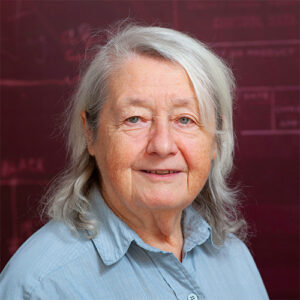
Maria Gini
Engineering and Computer Science Distinguished Professor, University of Minnesota
Dr. Gini’s Bio
Maria Gini is a Distinguished Professor at the University of Minnesota, where her research over the last 40 years has focused on autonomous agents’ decision-making for task allocation, robot exploration of unknown environments, swarm robotics, and teamwork. She is an ACM, AAAI, and IEEE fellow. She received the IJCAI Donald E. Walker Distinguished Service award (2024), ACM/SIGAI Autonomous Agents Research Award (2022), and the Computing Research Association A Nico Habermann Award (2019). She was recently awarded the Presidential Award for Excellence in Science, Mathematics, and Engineering Mentoring (PAESMEM).
Seminar Abstract
Can I Trust My Teammates? Are They Friends or Foes?
Autonomy in a multi-robot system refers to the ability to make decisions and perform tasks independently. To be successful, robots must be equipped with adequate sensors to gather data and actuators, so they can make decisions accordingly. But this is not enough. There is the potential for some team members not to be cooperative. They could simply be lazy, or slow at doing their work, perhaps due to battery problems or sensor failures, but they could also intentionally disrupt the work of the team. How can those undesirable behaviors be detected? Recognition of potential issues and adaptation are necessary, especially for critical and time sensitive tasks. We propose to measure trust using a model of trust that has been proposed in the agents’ community and present preliminary results.
Applied AI Futures Seminar | November 4, 2024
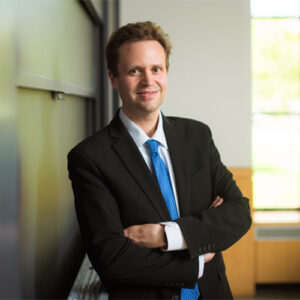
Markus J. Buehler
Professor of Civil and Environmental Engineering, MIT
On November 4, 2024, we welcomed Dr. Markus J. Buehler, Professor of Civil and Environmental Engineering at MIT, as the keynote for our inaugural Applied AI Futures Seminar Series. Professor Buehler’s talk focused on the various ways that we can use Applied AI to enhance engineering and computer science and solve multi-scale problems. You may view a video of his presentation below.
